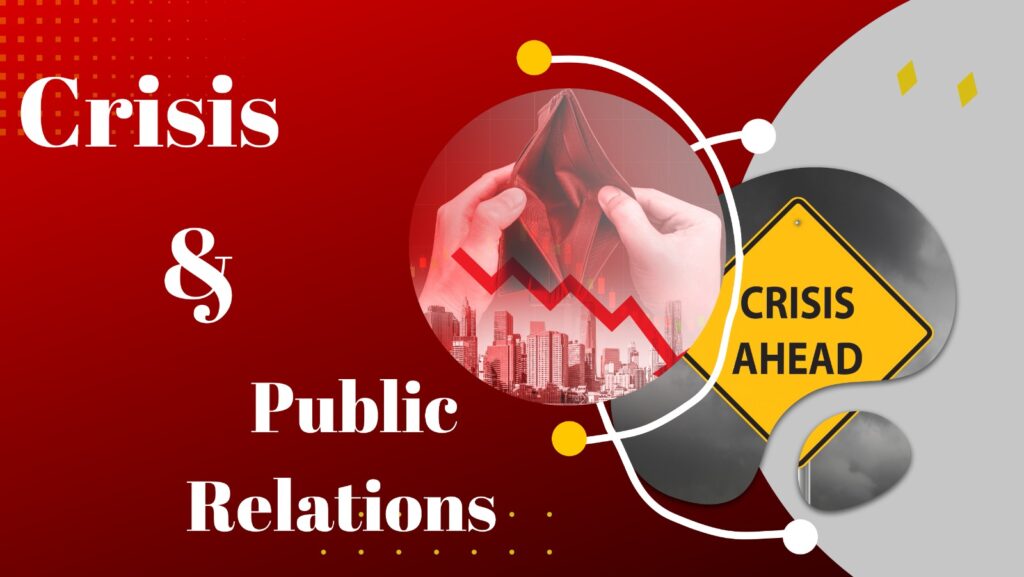There are several ways companies can get into trouble, including disclosure of user data, criticism or issues with the products and services offered, and complaints or allegations against speakers. In a crisis like this, it’s important to have an experienced PR and communications team ready to handle the crisis.
Remember that this kind of event (image management needed to deal with a crisis) can happen to any company and panicking about the situation is not the most effective solution. It is important. In fact, entrusting the crisis management process to a well-prepared person, such as a proven PR agency, to weather the storm and revive your name afterward, is the first step to maintaining your brand’s image. .
Planning is the cornerstone of successful crisis management, and this plan is well outlined before a crisis strikes. Having a strategy in place early will make the entire crisis response process faster and more efficient.
The first recommended action in the moment of crisis is usually to assess what really happened or to admit failure. The right approach, the right tone, and the right choice of words are paramount to accomplishing this task. PR agencies know what to do and most of all, how to do it.
Crisis management beyond the press
Side actions are part of the crisis management process. For example, at Sherlock Communications, our PR team will work with your company’s strengths in producing and distributing press materials to ensure positive coverage throughout the crisis management process. The digital marketing team constantly monitors social media, reports on new developments, responds quickly to them, and identifies relevant changes in public reaction.
Use our experience to your advantage
As a truly international PR agency, Sherlock Communications’ Latin American expertise allows us to work with you. B. Identify and train a response team of internal media spokespersons, develop internal and employee engagement and reassurance campaigns, conduct risk assessments, audits, conduct post-crisis analysis and ongoing reputational recovery actions. offer. Being prepared for a crisis is important because in crisis management a failed plan is a failed plan, regardless of whether a crisis occurs.
Strategies for weathering the storm
Be honest and transparent
People and organizations often hire media outlets and experts to “cover up” or “fix” crises. This is a short-sighted approach that boils down even more for those who use it. A better response would be to be transparent and generally respond quickly to show that you are aware of the issue and are working on it. Next, we outline the steps to fix the recognized errors. 2. Proactively develop crisis management policies and procedures
How aggressively you handle a crisis determines public perception of the real situation. The crisis in Ferguson, Missouri, is a good example of how the government’s lack of proactive online policies has damaged its reputation. As a result, the department is actively developing policies and procedures to deal with future crises. Your organization is no exception. Actively.
Own the problem
In today’s callout culture, skeletons don’t stay in the closet for long. This is the first step in regaining trust and shows that your company has admitted its mistakes and is actively addressing the issue. 4. Respond quickly, honestly and consistently
Starbucks’ response to the race relations issue a few months ago was routine. Shortly after two of his black men were arrested at one of his Philadelphia stores, the company closed all of its stores for racial sensitivity training. There was no “under investigation” delay. They were in front of me and I could see them. They took active steps to control the situation and resolve the issue.
Don’t be too defensive
It’s not always easy to digest negative feedback about your business, but it’s important not to be too defensive to prevent you from taking action. Keeping an open mind to what others are saying is important for managing external perceptions. You can speak up about important issues and take action to implement positive changes that move you in a more positive direction.
Consider everyone involved
Internal conflicts often have external influences. Before making a public statement, companies should identify and understand their stakeholders. Such an understanding helps companies engage with affected people while appealing to their self-interest. In many cases, bundling an apology into a solution gives companies the opportunity to turn a crisis into a real connection that strengthens customer loyalty. 7. Start addressing internal issues before they become public
If there’s an internal problem, it should be dealt with when it happens, not when it’s out in the open. Focus on long-term systemic change when problems arise and unfortunately become public. You already have the best crisis management strategy.
A solution exists and the problem has already been solved.
Deal with it and move on
The best response to the PR crisis is to embrace it and immediately start working on ways to improve your brand image. News cycles are fast, and companies that respond quickly and intelligently can take advantage of them. A Google search for Starbucks now turns up nothing but an article about the recent incident in Philadelphia and how they prioritized racial prejudice training.
Catch the story before others
In such situations, there is no substitute for speed. That’s why it’s important to put together a crisis management playbook that has gone through hundreds of potential crisis scenarios before a crisis hits. This way, you can pluck the negative publicity in the bud and further your own story.
Temporarily adjust your marketing strategy
Consider pausing all social media and programmatic efforts not directly related to your sales efforts. If you have a resource on your side of the story, consider running a limited-time search campaign that leads to that resource. If you don’t have a referring URL, update your negative search keywords.

